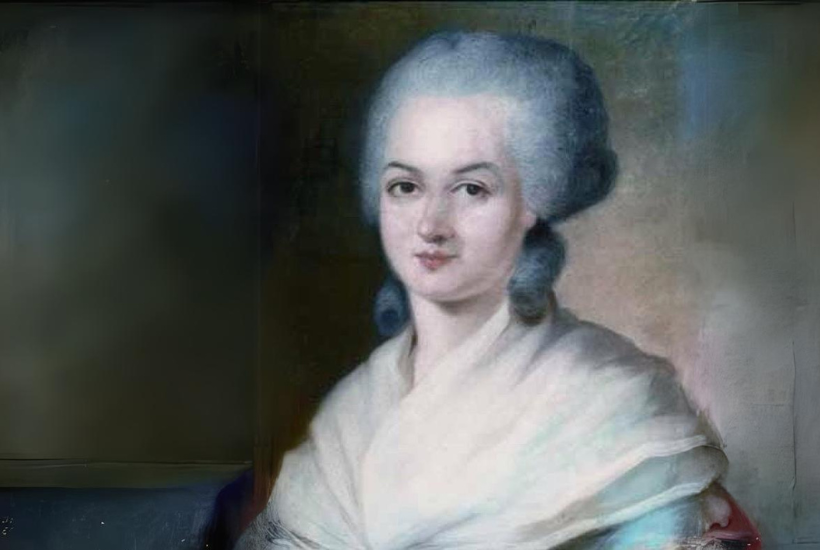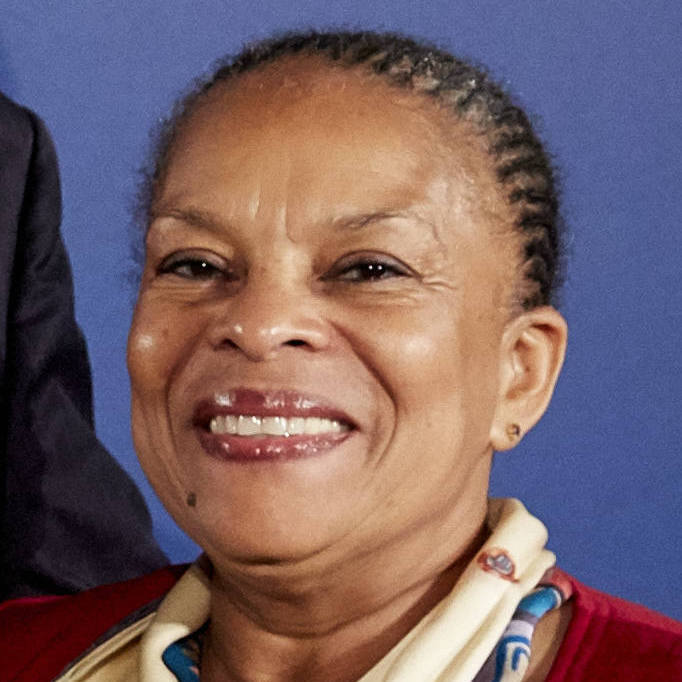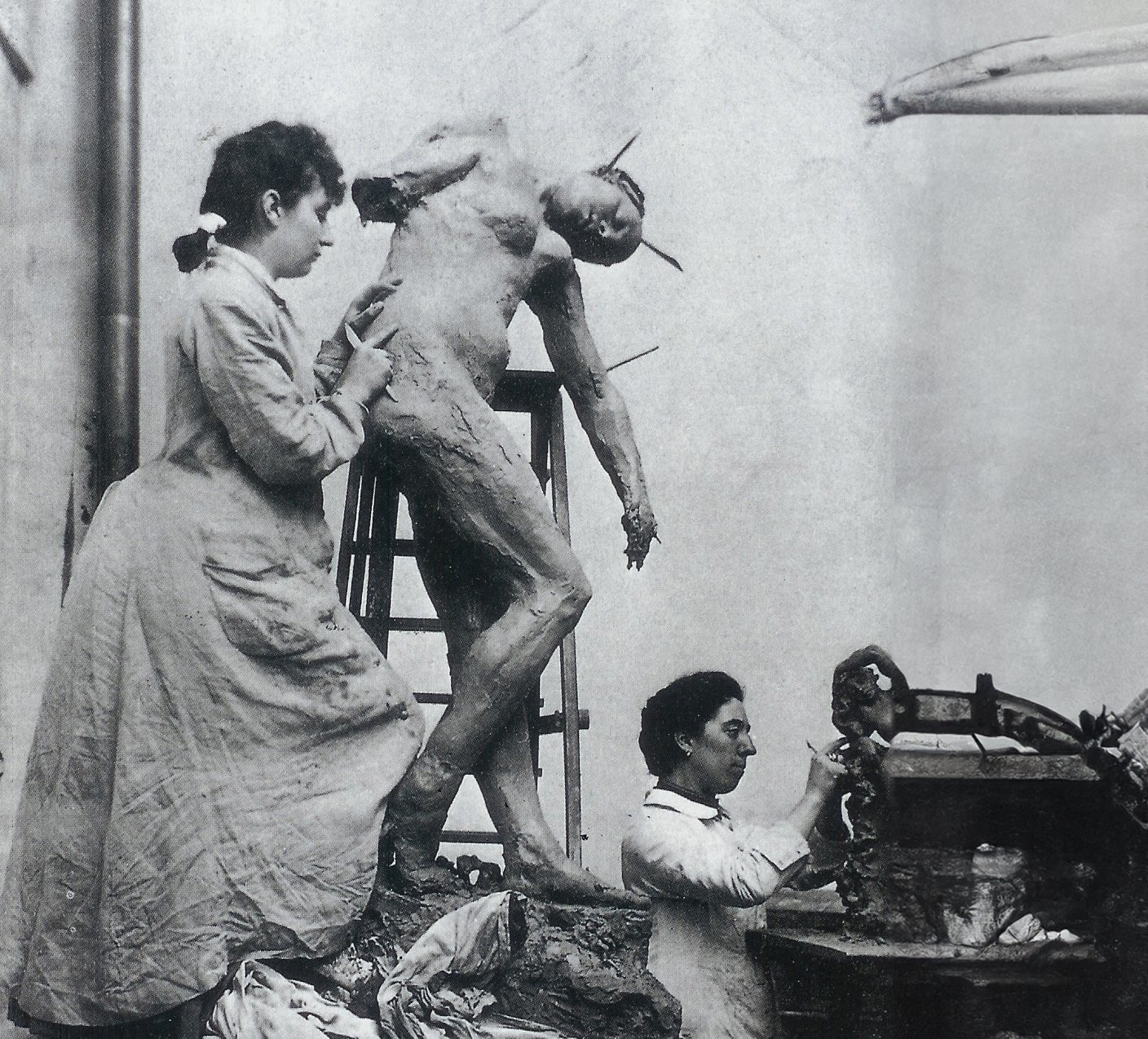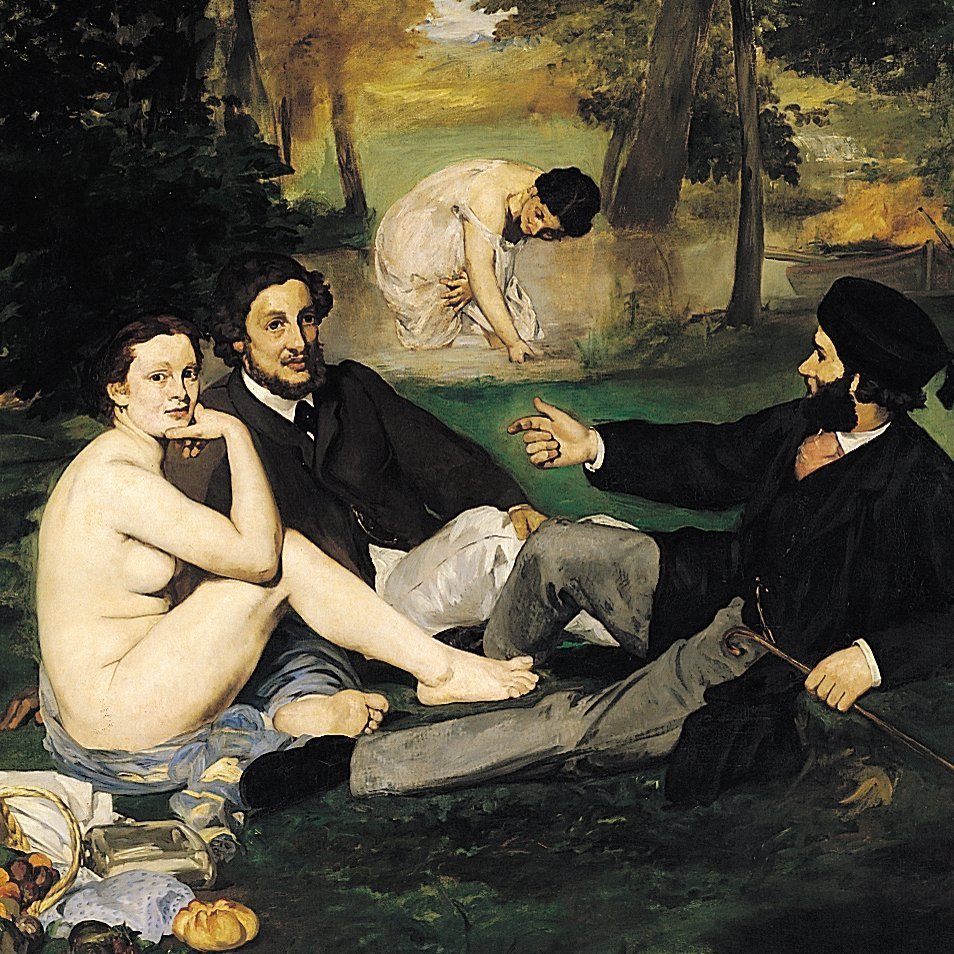France has produced some of the most influential (and sometimes controversial) feminist writers, and this week, to kick off celebrating Women’s History Month, we’ve chosen to focus on seven authors whose works continue to inspire us as feminists today. However, we would also like to note that there are many Francophone feminists whom we also admire, like Swiss author Mona Chollet, whose 2019 Sorcières: La puissance invaincue des femmes is a must-read (Coucou teacher Mahaut wrote their own review of it in the latest issue of La Gazette!). We would also be remiss if we forgot to mention Caribbean author Maryse Condé. We’re huge fans of her 1986 novel Moi, Tituba, sorcière noire de Salem!
By Sophia MilLman
Olympe de Gouges – Déclaration des droits de la femme et de la citoyenne (1791)

In The Second Sex, Simone de Beauvoir singles out Olympe de Gouges for being one of the few women in French history to protest against her “harsh destiny.” Indeed, de Gouges was ahead of her time; she was not only one of France’s first feminist thinkers, but also one of the country’s early abolitionists. Femme philosophe, playwright, political analyst, and activist, she advocated for the rights of many marginalized groups, including those of blacks, women, children, the poor, and the elderly. De Gouges authored 40 plays (12 survived), two novels, and close to 70 political pamphlets.
- You can read her famous Declaration of the Rights of Woman and the Female Citizen in French here.
- Looking for other early French feminist authors? You should read Flora Tristan and George Sand!
Simone de Beauvoir – Le Deuxième Sexe (1949)
If there’s one French feminist you’ve already heard of, it has to be Simone de Beauvoir, whose groundbreaking Second Sex is one of the most important works of the 20th century. You might also know that she had a complicated relationship with Sartre and that she was insanely smart. (At 21, she became the youngest person ever to obtain the prestigious agrégation in philosophy from the École Normale Supérieure.) But did you know that her nickname was Castor (Beaver) or that a naked photo of her appeared in the magazine Le Nouvel Observateur? Learn more about the “scandalous” picture here! Beauvoir wrote many excellent novels, but we recommend starting with Les Mandarins, which won the prestigious Prix Goncourt in 1954. Buy it in French here and in English here.
- We also highly recommend La femme rompue (1967) and Les inseparables, which was published posthumously in 2020!
- Want to read Beauvoir’s philosophical texts or her autobiography? Check out this article, which lists the best works by and about Beauvoir.
Monique Wittig – Les Guérillères (1969)
French avant-garde novelist and radical feminist Monique Wittig wrote many works about utopian worlds devoid of men. Her novel Les Guérillères is a two-part series of prose poems about women warriors in a female-oriented culture. Wittig’s other well-known work is Le Corps lesbien (The Lesbian Body; 1973). She also collaborated on a feminist dictionary with her partner Sande Zeig entitled Brouillon pour un dictionnaire des amantes (1976; Lesbian Peoples: Material for a Dictionary). Learn more about her extraordinary life in this French video, “Monique Wittig, lesbienne révolutionnaire.”
- Buy Les Guérillères in French here and in English here.
- Buy Le Corps lesbien in French here and in English here.
Gisèle Halimi – La cause des femmes (1973)
Tunisian-born French feminist and lawyer Gisèle Halimi passed away in 2020, leaving a powerful political legacy behind her. Halimi grew up in a poor and conservative Jewish family. At 16, she refused an arranged marriage and moved to France, returning to Tunis in 1949 to defend members of the Algerian nationalist movement the FLN. In 1960, Halimi defended Djamila Boupacha, an Algerian woman accused of having planted a bomb during the Algerian war, and who was tortured and raped by French soldiers. Halimi also famously helped pass a French law that legalized contraception and abortion in 1975.
- If you are interested in the history of militantism and the Algerian War, you should read Djamila Boupacha, a book that Halimi co-wrote with Simone de Beauvoir.
- Buy Halimi’s riveting La cause des femmes, about her role in the feminist movement, here and her final work Une farouche liberté (2020) here.
- Want to practice your French listening skills? Check out an excellent podcast series about Halimi here.
Virginie Despentes – King Kong Théorie (2006)
Virginie Despentes was born in 1969 and had a troubled childhood. After she was hospitalized for psychiatric treatment at 15, she became involved in the French punk scene and worked occasionally as a prostitute. In 1992, she wrote Baise-moi (Fuck Me), which she would later adapt into a film in 2000. Despentes won the Prix Renaudot in 2010 for her novel Apocalypse Bébé and became a member of the Académie Goncourt in 2016. Her direct writing style makes her one of France’s most readable and controversial feminist authors.
- Buy Despentes’ essential feminist manifesto King Kong Théorie in French here and the English translation here.
- Read her 2020 op-ed published in Libération about Roman Polanski winning a César award here.
Simone Veil – Une Vie (2009)
Simone Veil led an extraordinary life and is undoubtedly one of the most admired figures in France. She survived deportation to Auschwitz as a teenager during World War II and subsequently became France’s health minister, championing the 1975 French law that legalized abortion. (Note that Gisèle Halimi, featured above, also contributed to passing the law.) Veil also drafted legislation that expanded the rights of prison inmates, people with disabilities, and disadvantaged children. She served as the first woman president of the President of the European Parliament 1979 to 1982. Upon Veil’s death, Emmanuel Macron released the following statement: “Her uncompromising humanism, wrought by the horror of the camps, made her the constant ally of the weakest, and the resolute enemy of any political compromise with the extreme right.”
- Buy Veil’s breathtaking memoir Une Vie here and the English translation here.
- Read a New York Times article about Veil’s historic burial at the Pantheon here or a French article here. She’s the fifth woman to be buried there.
- You can watch many interviews in French with Veil here.
Lauren Bastide – La Poudre (2020)
Journalist Lauren Bastide worked for ELLE between 2005 and 2015 and had a brief stint in television before co-founding the podcast network Nouvelles Écoutes in 2016. She has also hosted Les Savantes on France Inter, a radio show that highlights recent women’s research in sociology, economics, biology, and many other scientific domains. Considered the “spiritual mother” of French feminist podcasters, Bastide created La Poudre, in which she interviews women activists and artists.
BONUS : ROZENN LE CARBOULEC – LES HUMILIÉ·ES (2023)
View this post on Instagram
Rozenn Le Carboulec, a journalist specializing in LGBTQIA+ issues, founded the Quouïr podcast in 2018. Through this platform, she provided a voice for the queer community to discuss significant societal matters. In 2023, she published the book “Les Humilié·es,” offering a insightful examination of the media’s handling of anti-same-sex marriage protests. Additionally, she recently introduced Gender Cover, a newsletter dedicated to monitoring and analyzing discrimination and anti-gender movements.
- Read this short interview called “La décennie féministe de Rozenn Le Carboulec” (lit. Rozenn Le Carboulec’s feminist decade)
- Follow Rozenn on instagram here.
- Buy her book, “Humilié·es,” here.
Other French texts written by feminists that we love:
- Annie Leclerc: Parole de femme (1974)
- Benoîte Groult: Ainsi soit-elle (1975)
- Annie Ernaux: Ce qu’ils disent ou rien (1977)
- Marguerite Duras: L’Amant (1984)
- Antoinette Fouque: Il y a deux sexes. Essais de féminologie (1995)
- Simone Weil: Réflexions sur les causes de la liberté et de l’oppression sociale (1998)
- Hélène Cixous: Le Rire de la Méduse et autres ironies (2010)
- Christine Delphy: L’ennemi principal (2013)
- Laure Adler: Le Corps des femmes (2020)





